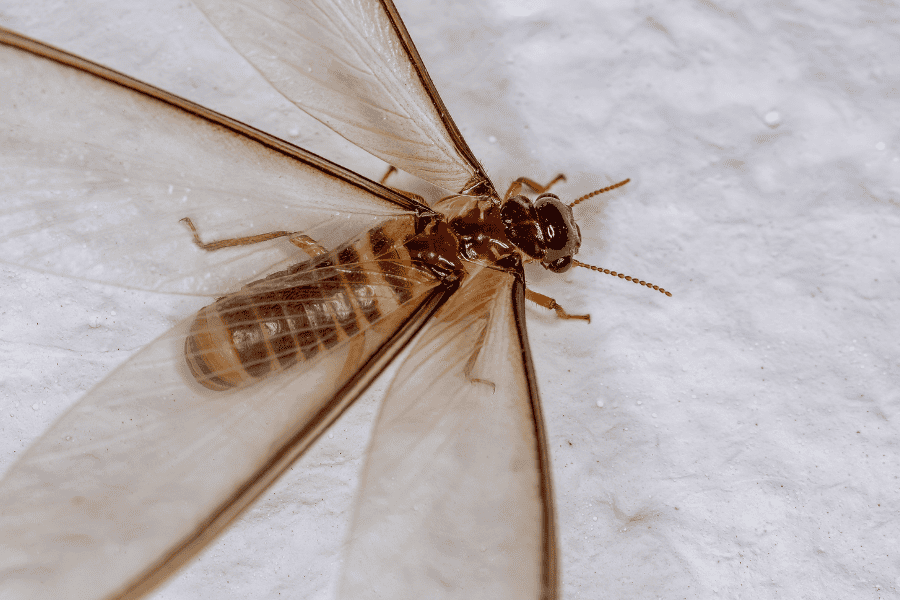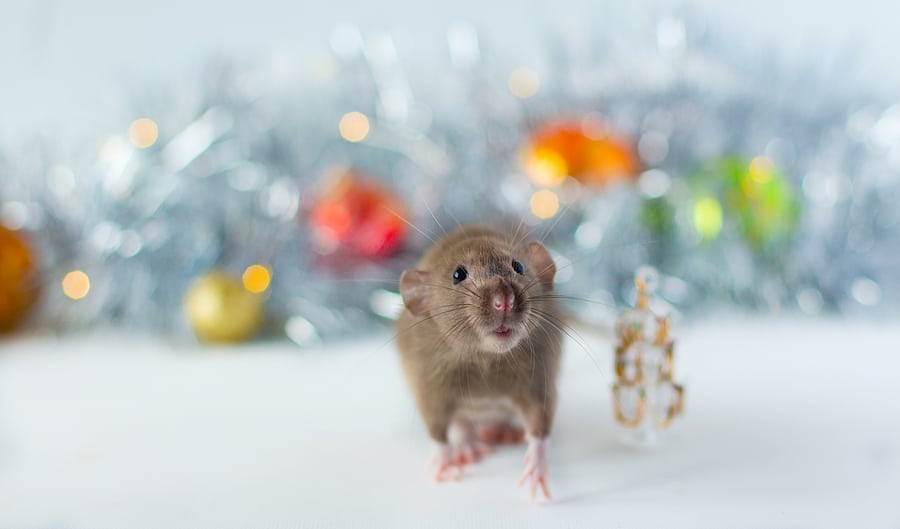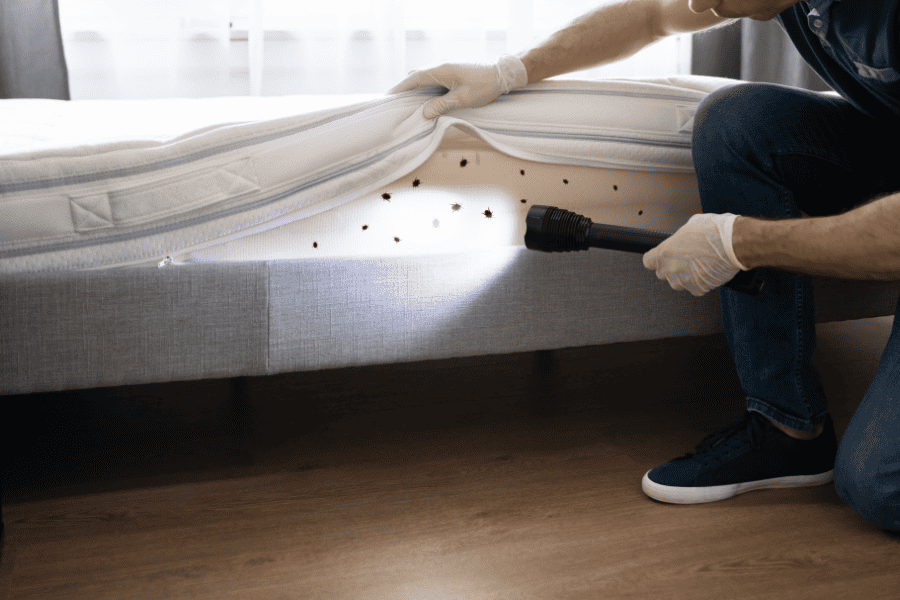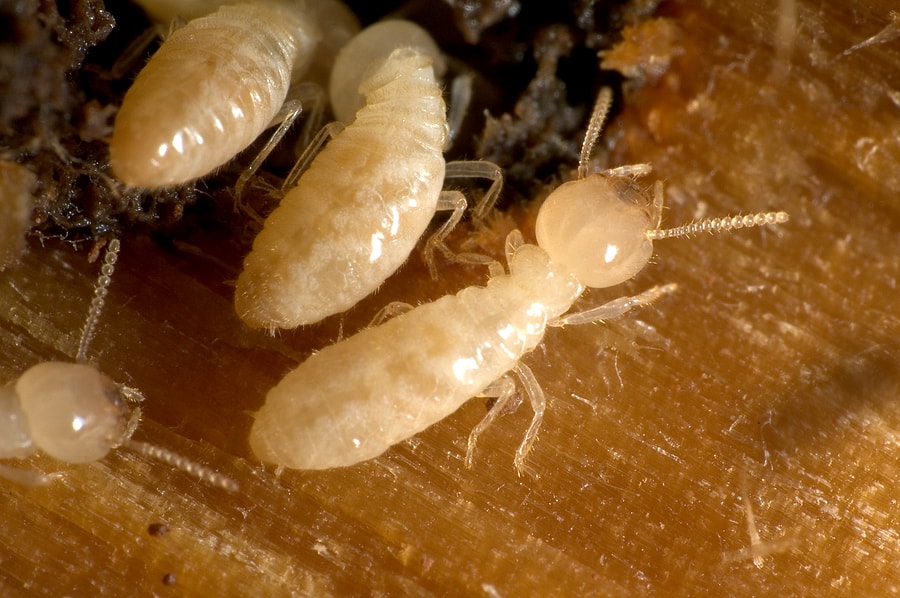READY TO GET STARTED?
REQUEST A FREE ESTIMATE
Fill out the form below or call (888) 466-7849 for a free, no-obligation estimate.

Florida has a unique climate compared to the rest of the southeast, especially in the winter months. Due to the humidity and active pests this time of year, effectively storing your holiday decorations to prevent a pest infestation can require a bit more strategy. Let’s go over the best ways to store holiday decorations pest-free, year-round!
Opting for moisture-resistant plastic containers with tight sealing lids makes it easier to create a protective barrier against the damp Florida air. This not only guards your decorations against moisture-related damage, but also helps to deter pests attracted to humid environments.
Cardboard is susceptible to moisture damage and is an attractant for certain pests. The material is easy to chew through for cockroaches and silverfish, making it a not-so-great option for storing items year-round. Utilizing plastic storage containers is a great way to discourage pests from taking over your décor.
Items like gingerbread houses or even candy canes should be discarded after the holiday season ends. It’s better to remake or repurchase the food-based decorations yearly.
If you are storing boxes in your basement or garage, utilize a shelving unit to place boxes on. When boxes are stacked on the ground or piled up, they can become ideal hiding spots for pests or rodents. Using shelves will keep these boxes off the ground, limiting the chance for them to become an unwanted pest’s home.
Use these tips to store holiday decorations and preserve the holiday spirit in your Florida home! If you notice more pests than normal in your storage space, contact your local pest control company for a customized pest plan and enjoy a pest-free holiday!

Dealing with a drywood termite infestation is less than ideal since these pests can cause significant structural damage to your Florida home. So how can you prevent termites from invading? It’s important to understand the characteristics of drywood termites, signs of their activity, and the preventative measures to place throughout your home, we break down all these below.
Drywood termites have an oval-shaped waist, short legs, and a cream-white to light brown colored body. The size of these termites depends on their age, but usually range from ¼ inch to 1 inch long. Unlike their counterpart, the subterranean termite, drywood termites do not need soil to live. Instead, they excavate wood, living and nesting within wooden structures or dry wood, such as attic framings.
Since these termites live in the excavated wood, it can be difficult to spot and identify them. However, there are still termite signs you can look out for. Swarms of termites or discarded wings near windowsills or doors is an early indication that a colony has been established at your home. Likewise, spotting their droppings, or frass, is a telltale sign of a termite infestation. These droppings look like small mounds of tiny pellets.
Consider implementing these do-it-yourself termite control measures throughout your property to avoid a termite infestation:
If you’ve noticed drywood termites on your property or would like to get ahead of your termite prevention, contact your local Florida termite control company for more information. These professionals will provide you with a free inspection, a treatment plan based on your home’s needs, and recommendations on preventing termites in the future.

The holiday season in Georgia brings joy, warmth, and festive cheer. However, it also marks the arrival of unwanted guests – holiday pests that can disrupt your celebrations. As temperatures drop, pests seek refuge indoors, making pest-proofing your home a crucial step in ensuring a pest-free holiday season. In this guide, we’ll explore common winter and holiday pests, along with effective tips for holiday pest proofing and elimination.
If you find yourself facing an infestation despite your best efforts, it’s crucial to act promptly. Our expert pest control services are tailored to address the unique challenges posed by holiday pests. We utilize advanced techniques and environmentally friendly treatments to ensure a safe and pest-free home.
Don’t let holiday pests dampen your festive spirit. Take proactive steps for holiday pest proofing and enjoy the season without unwanted visitors. Contact your local pest control company today for a free pest control quote, and let our experienced team safeguard your home for a joyful and pest-free holiday season.
Wishing you a happy and pest-free holiday season!

Bed bugs are the unwelcome guests that can ruin your sleep and take over your home. These tiny, apple seed shaped insects can easily infest your home without warning by hitchhiking via your luggage or other personal belongings. To help you prevent bed bugs, let’s go over the common signs of bed bugs and how to effectively manage them as pests.

As winter settles in Georgia, many homeowners may breathe a sigh of relief, thinking that pests like termites take a break during the colder months. However, the reality is that termites are resilient creatures, capable of surviving and even thriving in the cold. In this blog post, we’ll explore whether termites are active in winter, how they avoid the cold weather, when termite season hits Georgia, and most importantly, effective ways to prevent termites in winter.
Contrary to popular belief, termites remain active even in the colder months. While they may slow down their activity, they don’t go dormant. Termites are cold-blooded insects, meaning their body temperature is influenced by their environment. In warmer climates like Georgia, termites may continue their destructive habits throughout the year.
Termites are well-adapted to survive harsh conditions. Subterranean termites, one of the most common types in Georgia, create elaborate underground tunnels that provide a stable and temperature-controlled environment. These tunnels help them avoid extreme temperatures, including the cold of winter. Additionally, termites may move deeper into the soil where temperatures are more stable.
Termite season in Georgia typically starts in spring and extends through the early fall. This is when termites are most active and likely to swarm, seeking new locations to establish colonies. However, as mentioned earlier, they remain active throughout the year, making continuous termite control efforts crucial for homeowners.
Don’t wait until termite damage becomes evident. Protect your home by taking proactive measures against termites, especially during the winter months. Request a free termite control quote today and let our experts safeguard your home against these persistent pests. Don’t let termites take advantage of the winter season. Invest in termite prevention now and enjoy peace of mind throughout the year. Contact your local pest control company today and take the first step toward a termite-free home.